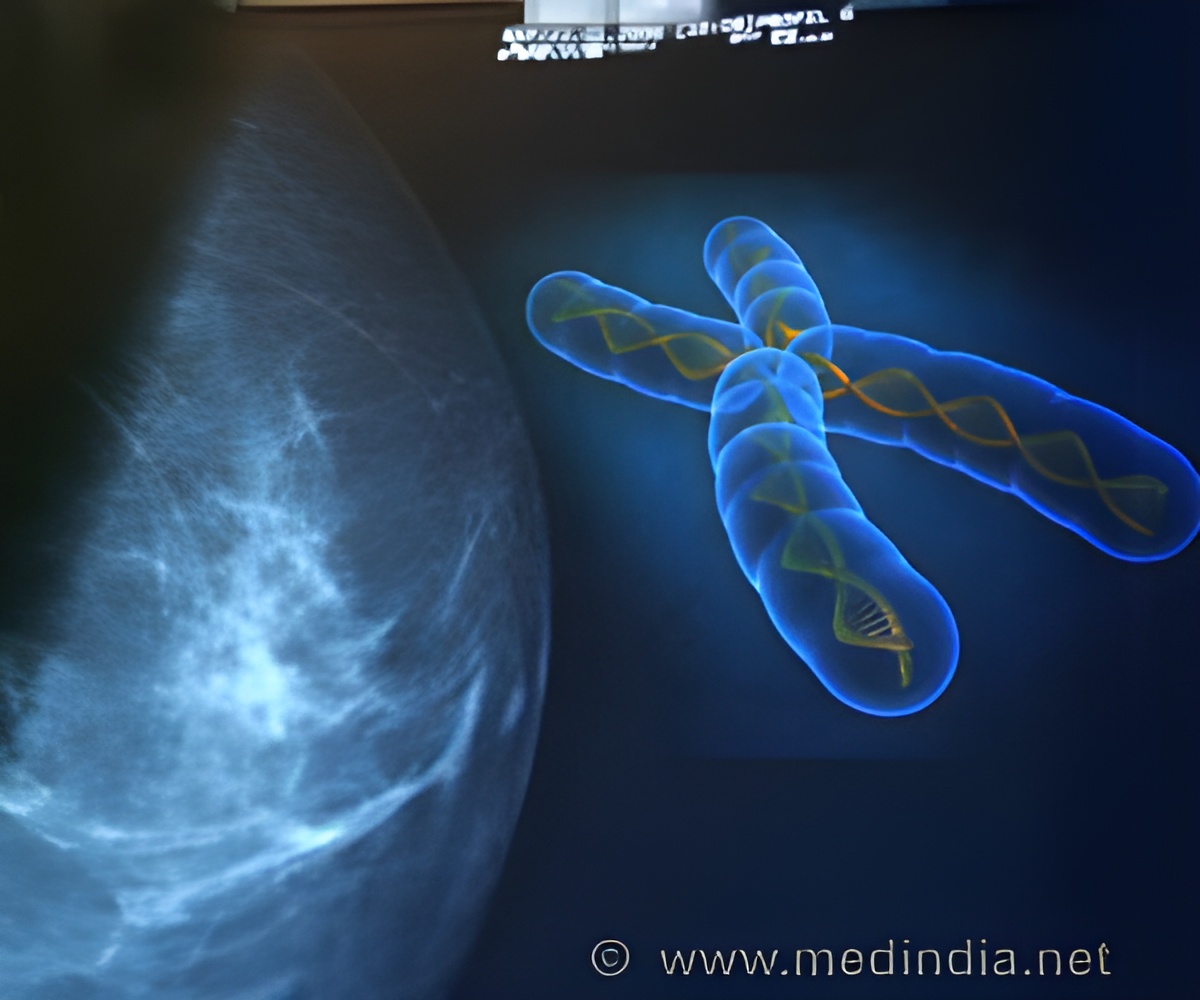An international team of scientists has identified an association between heritable, rare mutations in the RINT1 gene and increased risk of early onset breast cancer.

The rare mutations in RINT1, a tumor suppressor gene, were detected in three of 49 families participating in a study that sequenced the whole exome, the protein-coding DNA, of families with multiple individuals affected by breast cancer.
"Although mutations in RINT1 are rare, it is most likely that the remaining unknown breast cancer susceptibility genes will account for similar small proportions of the disease," said Daniel J Park, Ph.D., who presented the study at ASHG 2013 and is Senior Research Fellow in genetic epidemiology at the University of Melbourne, Australia.
Only about 35 percent of the familial risk for breast cancer has been explained, according to Dr. Park and his collaborators, who added that the discovery of the RINT1 variants' association with the disease could help members of families with multiple cases of breast cancer to identify their individual risk for developing the cancer.
Dr. Park's collaborators in the search for unidentified breast cancer susceptibility genes are scientists at the Institute Curie in Paris, International Agency for Research on Cancer in Lyon, France, Huntsman Cancer Institute in Salt Lake City, Utah, as well as the University of Melbourne.
After pinpointing the first three mutations in RINT1 (p.Q115X, p.M378del and p.D403Y), the international team of scientists assessed the association between the variants and breast cancer risk by conducting a population-based case-control study of 1,313 women diagnosed with early-onset breast cancer. Rare RINT1 variants were uncovered in 23 individuals in this group, but in only 6 women out of 1,123 who did not have breast cancer, demonstrating a significant association between RINT1 mutations and risk of early onset breast cancer, according to the researchers.
The scientists reported that research identifying RINT1 as a breast cancer susceptibility gene is consistent with prior studies showing that mice that carry a RINT1 mutation spontaneously develop a variety of tumors, including breast cancer, at a combined rate of 81 percent, which is higher than the rate at which breast cancer spontaneously develops in laboratory mice that have a BRCA1 mutation.
Previous studies have shown that RINT1 serves as a tumor suppressor essential for maintaining the function of the Golgi apparatus, which packages proteins inside the cell, and the integrity of the centrosome, which coordinates mitosis, a stage of cell division that separates two identical sets of chromosomes into newly dividing cells.
The scientists' ASHG abstract is titled: "Rare mutations in RINT1 predispose carriers to early-onset breast cancer."
Source-Eurekalert
 MEDINDIA
MEDINDIA




 Email
Email










